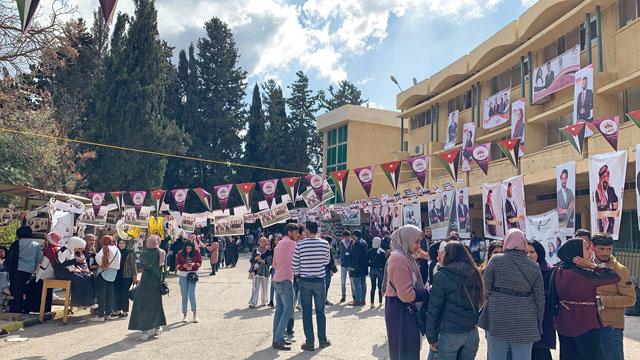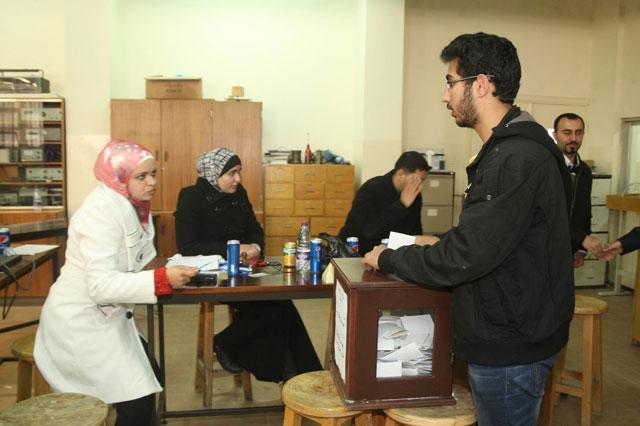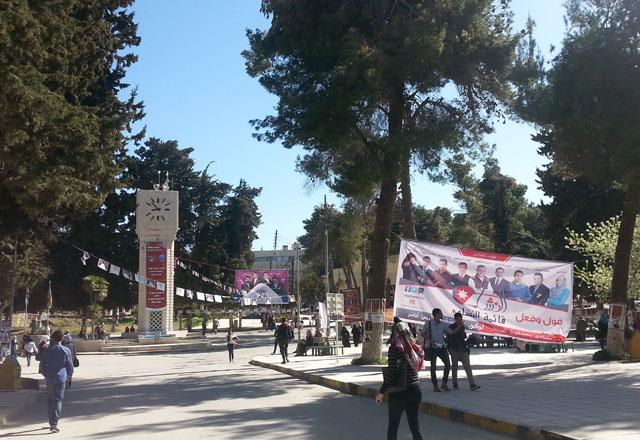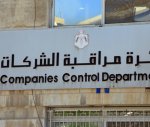You are here
UJ elects new students’ union
By Suzanna Goussous - Apr 09,2017 - Last updated at Apr 09,2017
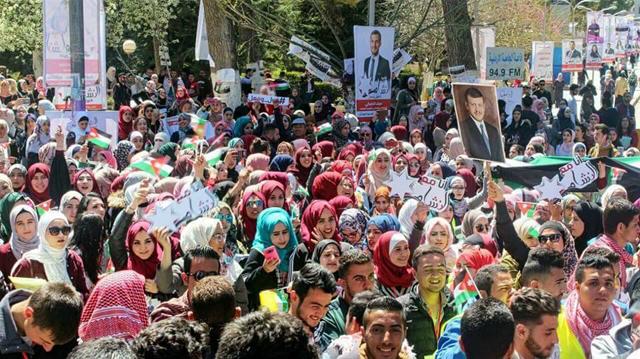
Students' union elections at the University of Jordan on Thursday recorded a 54.7 per cent turnout (Photo courtesy of UJ)
AMMAN — Students’ union elections at the University of Jordan (UJ) on Thursday recorded a 54.7 per cent turnout, lower than the last 2015 elections, which saw 58.8 per cent of students voting, according to university officials.
The lists that received the majority of votes were Al Nashama and Ahl Al Himmeh, which won six seats each, Al Awda which obtained two seats, and Al Tajdeed (Renewal Bloc) one seat.
Al Nashama received around 7,266 of the total votes, amounting to 41 per cent, while Ahl Al Himmeh received 6,387 votes, worth 36.7 per cent. Around 2,669 votes went to Al Awda, worth 15.3 per cent, and 1,008 votes were cast for Al Tajdeed, which ran for the first time in this year’s elections, amounting to 5.8 per cent.
The number of students eligible to vote this year was 40,996. Many commended the variety of backgrounds and lists available, noting that candidates could express themselves freely during the campaigning period.
Student Mariam Salameh said she voted this year because “she felt there was a sense of diversity and tolerance among candidates”.
Meanwhile, third-year student Mohammad Shami criticised the lists for solely conveying messages of “tribalism” and “discrimination”, and failed to present their own agenda for the university’s student union.
He added that many students only vote depending on their religious, political or social background, and dismiss the candidates’ programmes to serve the community on campus.
Leftist activist Ahmad Fakher said the elected student union was a council “based on religious views, sectarianism and tribalism”.
“It is far from being a democratic space; the elected candidates are anything but political, which creates major problems. When one is not politically aware, they cannot achieve anything, whether at the university level or at the national level,” Fakher told The Jordan Times.
He said the overall organisation of the council “reflects the mindset of Jordanians”, without paying attention to the vital points “worth discussing”, such as the status of students in public universities, the services provided to them, and the privatisation of public universities.
Some students abstained from voting, claiming that the candidates and lists “do not serve the needs of students”.
The student union’s elections were postponed late last year, due to a clash that erupted on campus on November 24.
Omar Kafaween, the head of the higher elections committee, said the voting procedure was “normal, with no major violations recorded, paving the way for more democratic events on campus”, according to a statement sent to The Jordan Times.
In a statement to The Jordan Times, former MP Jamil Nimri said that the university requested that candidates limit the number of banners displayed during the elections. By displaying the candidates’ names, the banners can also mark out a candidate’s tribe, ethnicity or regional background.
“The electoral scene tends more towards regionalism and tribalism. Despite the fact that university officials requested the removal of the banners, the competition still witnessed tribalism and regional biases in the political arena among the student body,” Nimri said.
Related Articles
AMMAN — Thousands of students at the University of Jordan voted to elect their student council on Thursday, sifting through more than 700 ca
The University of Jordan (UJ) registered a 58.89 per cent voter turnout in Thursday’s student union elections, up from last year’s 56.67 per cent rate.
This year’s student union elections at the University of Jordan (UJ) went “peacefully and more successfully” compared to last year, with very minor violations, according to a UJ official.


